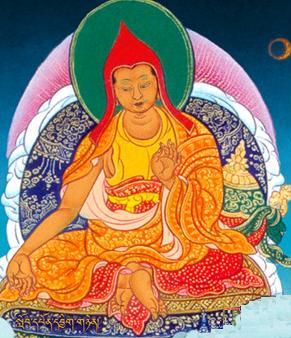Abhidharma: Difference between revisions
Jump to navigation
Jump to search
No edit summary |
No edit summary |
||
| Line 13: | Line 13: | ||
*inner science | *inner science | ||
*special knowledge | *special knowledge | ||
==External Links== | |||
*[https://www.youtube.com/watch?v=UoJgtXHmWTQ Presentation on the topic of consciousness, mental states, and the thought process in the Theravada Abhidhamma tradition given by Rupert Gethin at the Mind and Life seminar, with His Holiness the Dalai Lama posing the contrasting views of the other Abhidharma traditions.] | |||
[[Category:Key Terms]] | [[Category:Key Terms]] | ||
Revision as of 20:01, 21 June 2016

Abhidharma (Skt.; Tib. ཆོས་མངོན་པ་, མངོན་པ་, chö ngönpa; Wyl. chos mngon pa) — the third of the three pitakas, or collections (literally ‘baskets’), into which the Buddhist teachings are divided. This pitaka, which is associated with the training in wisdom (Skt. prajñā), defines many of the topics mentioned in the sutras, and arranges them in classifications, such as the five skandhas, twelve ayatanas and eighteen dhatus, thereby providing tools for generating a precise understanding of all experience.
Major Texts
Subdivisions
- Upper Abhidharma of the Mahayana
- Lower Abhidharma of the Shravakayana
Alternative Translations
- higher knowledge
- inner science
- special knowledge